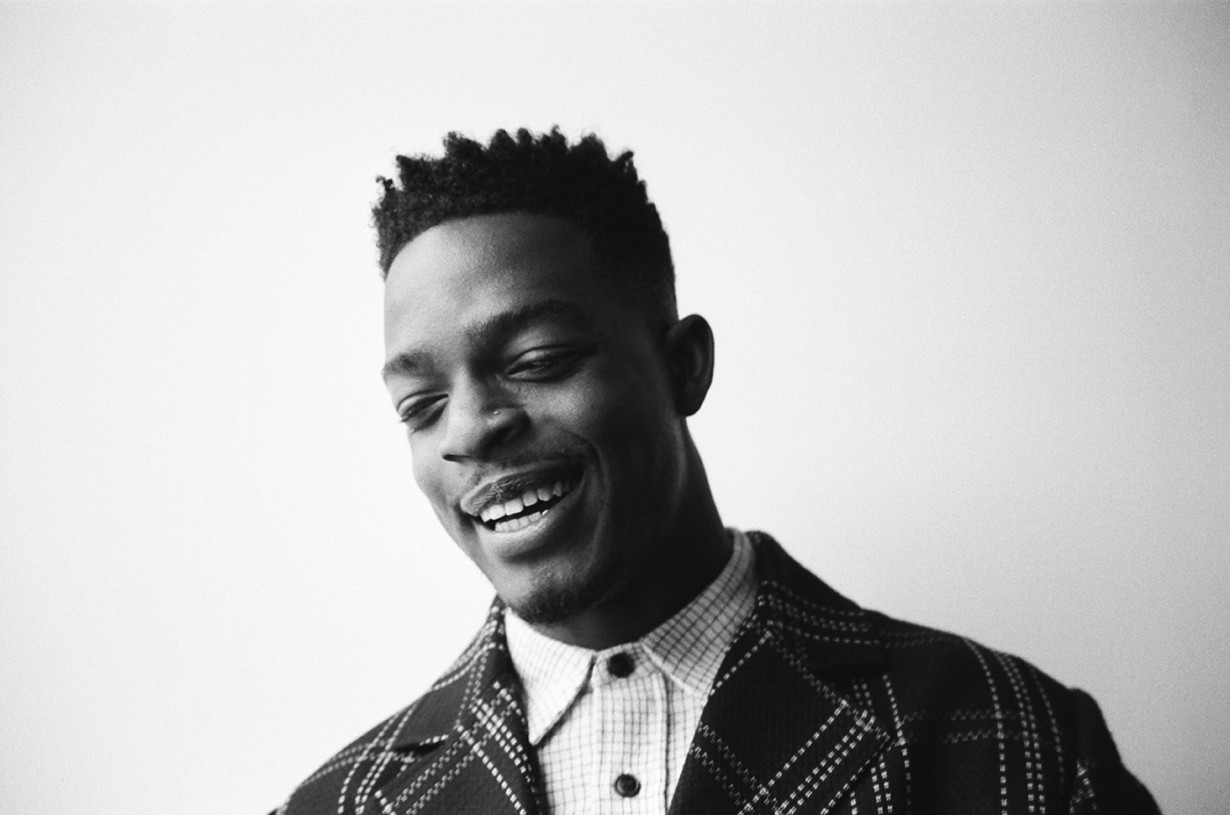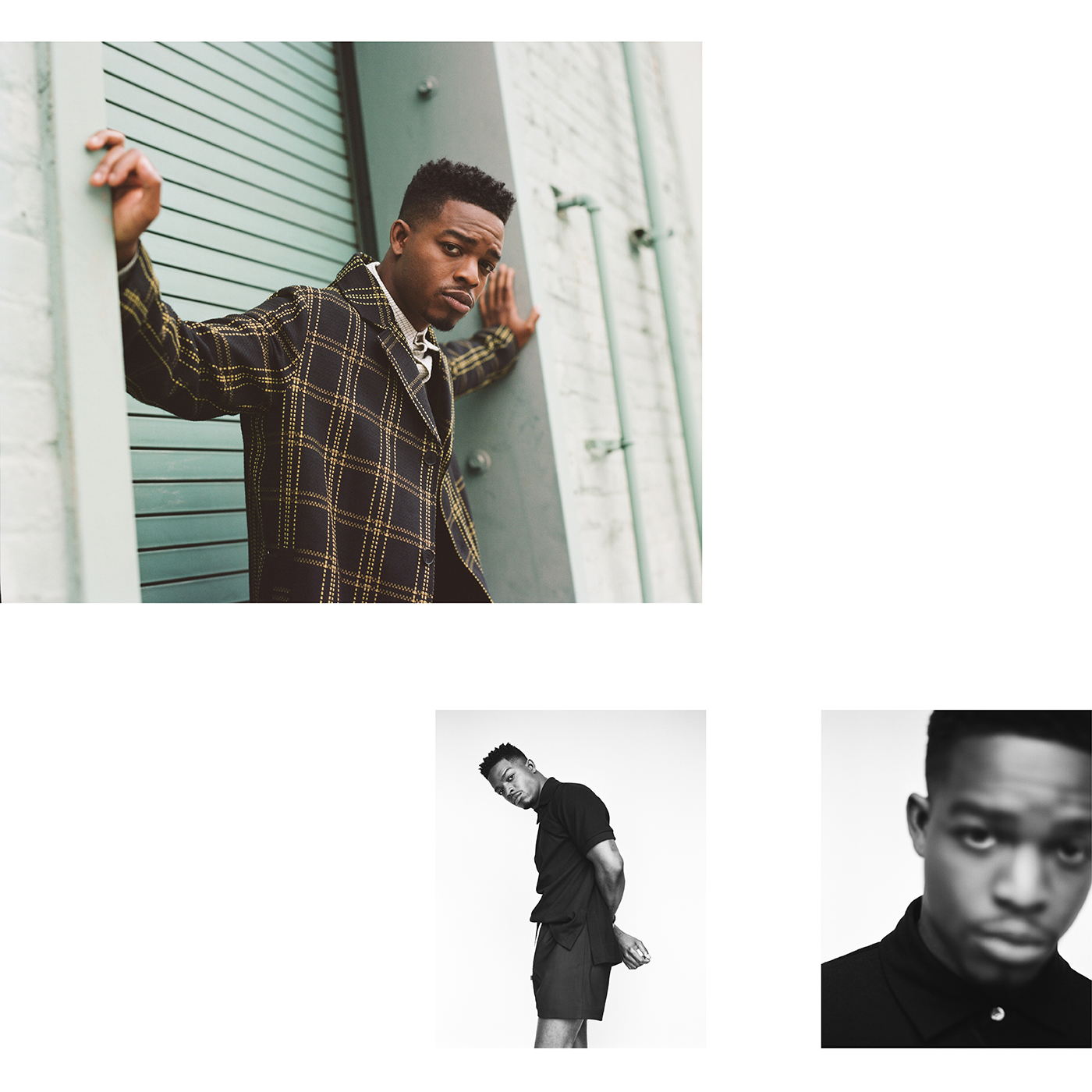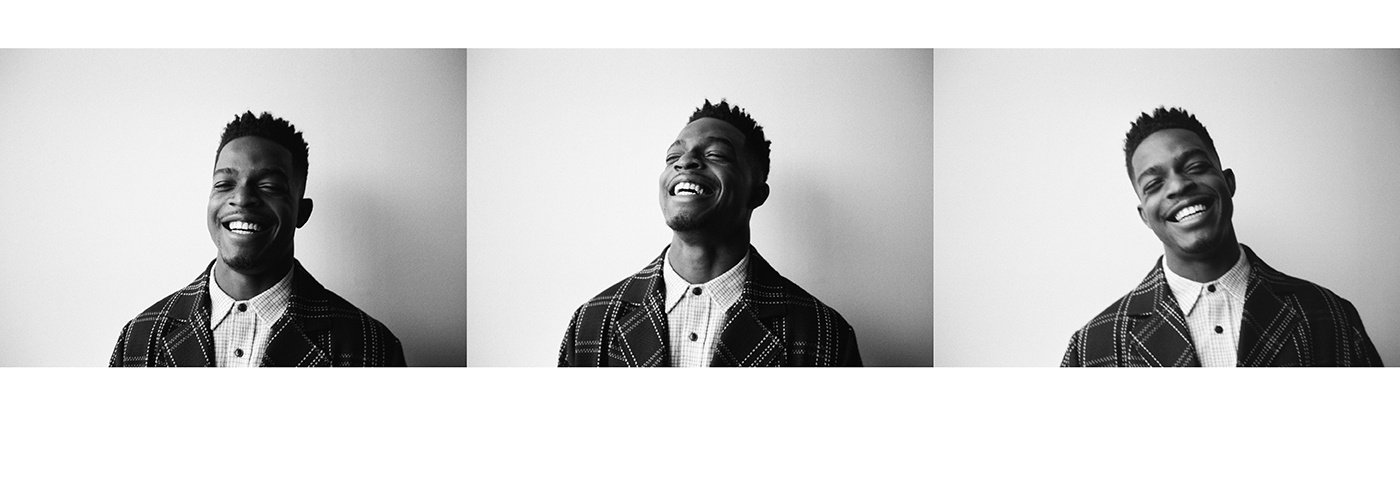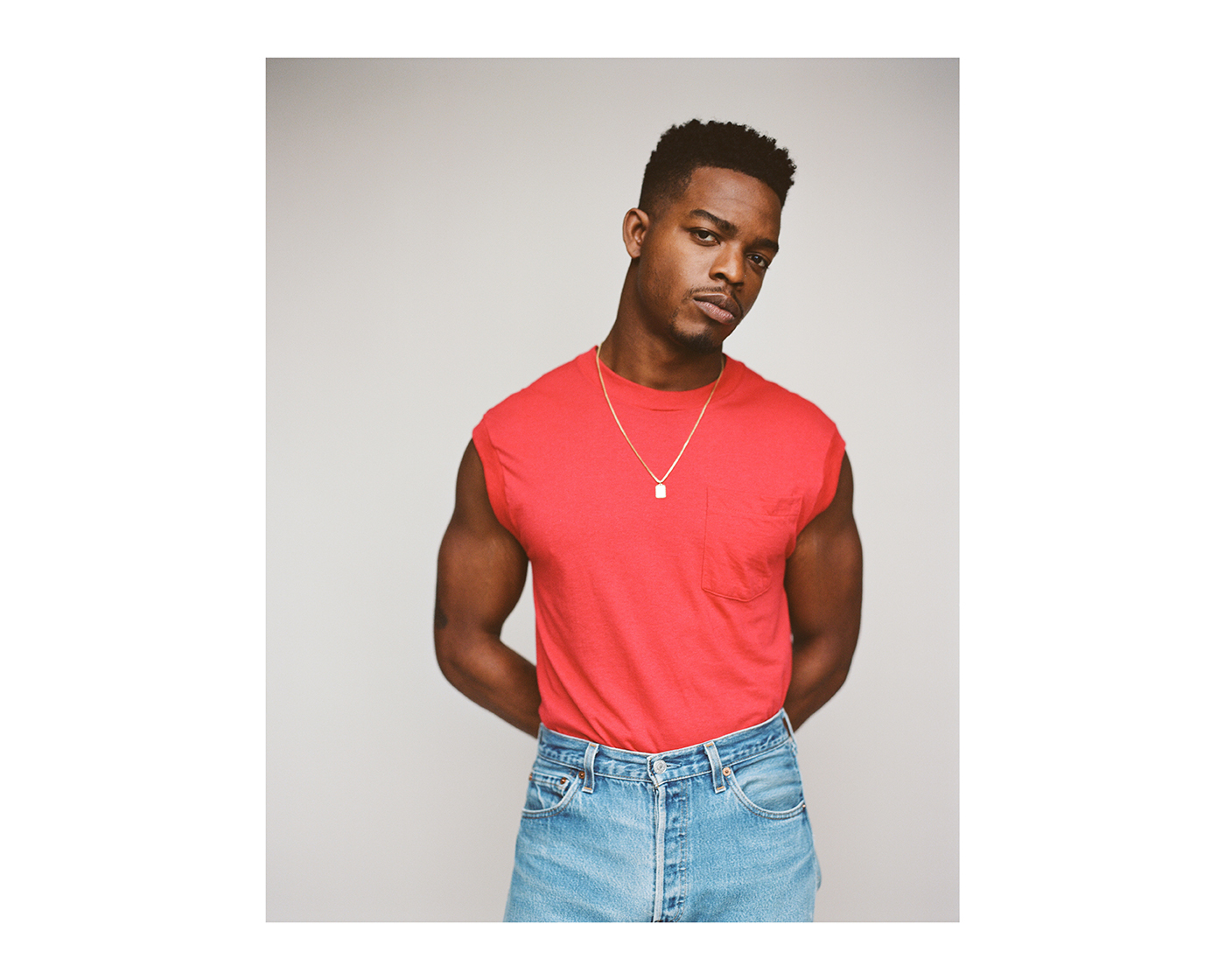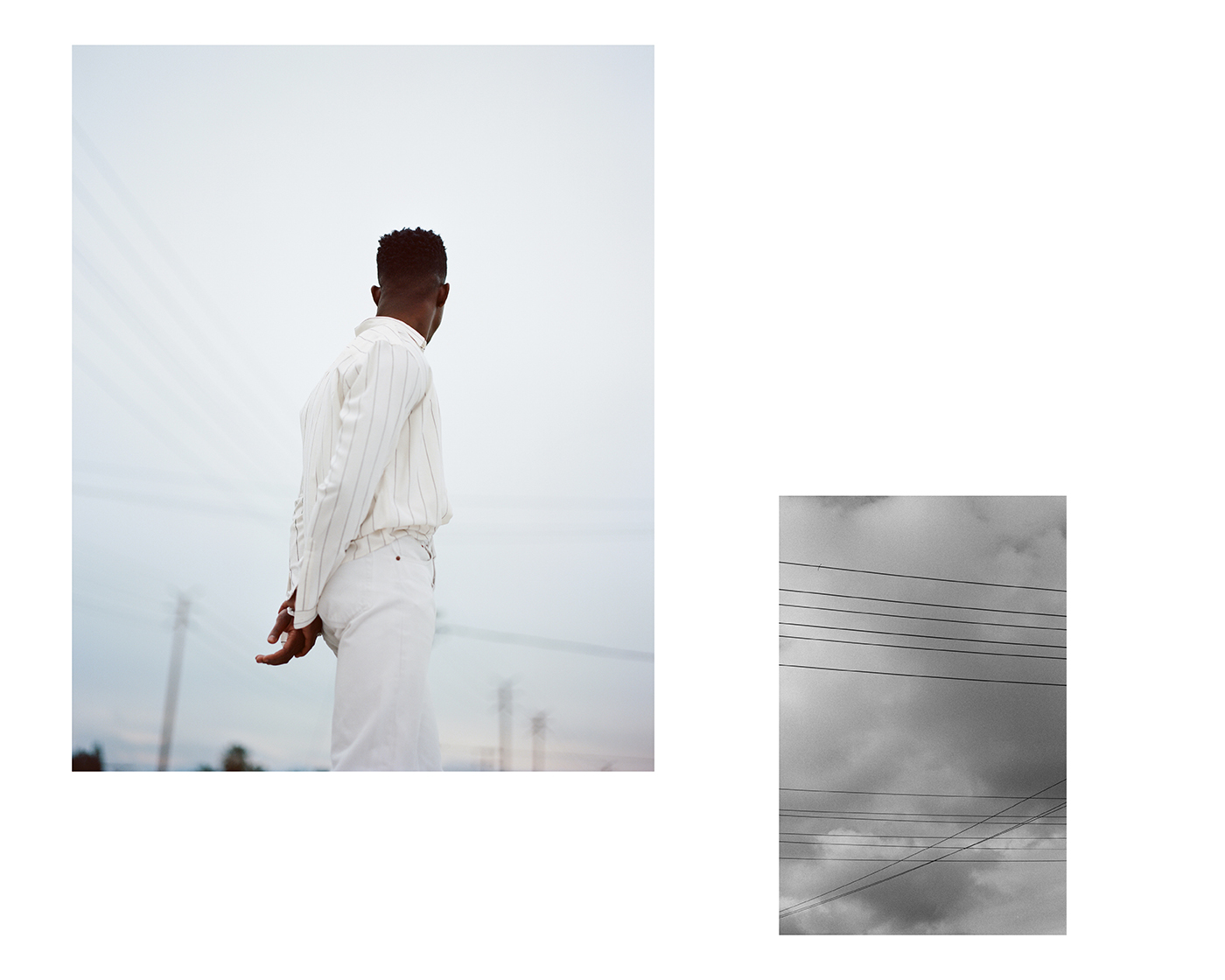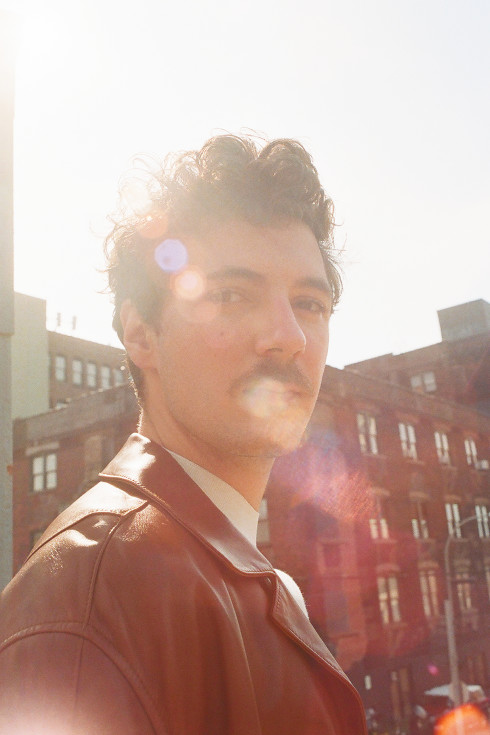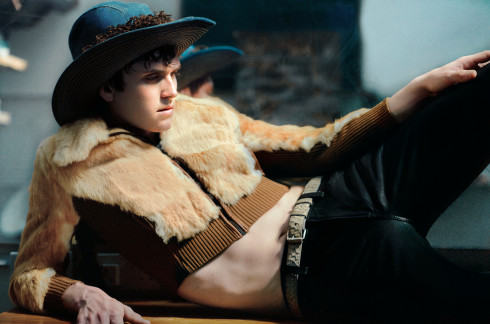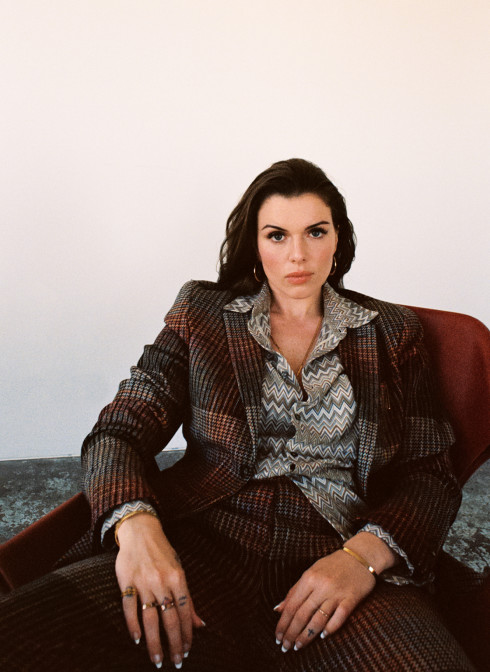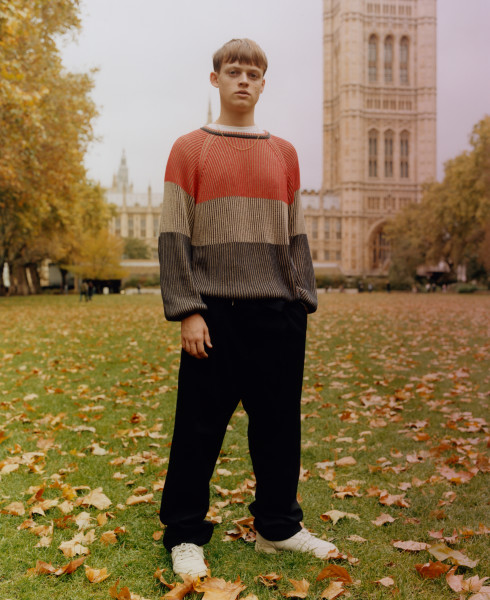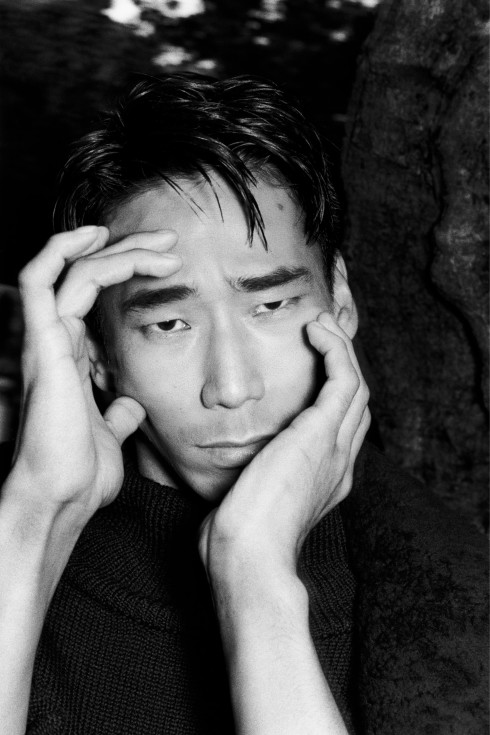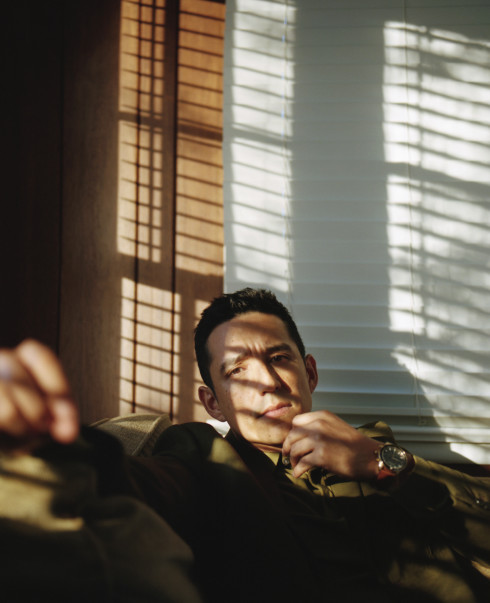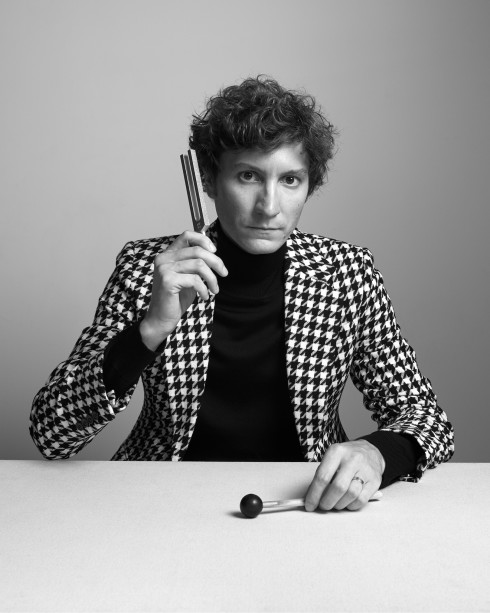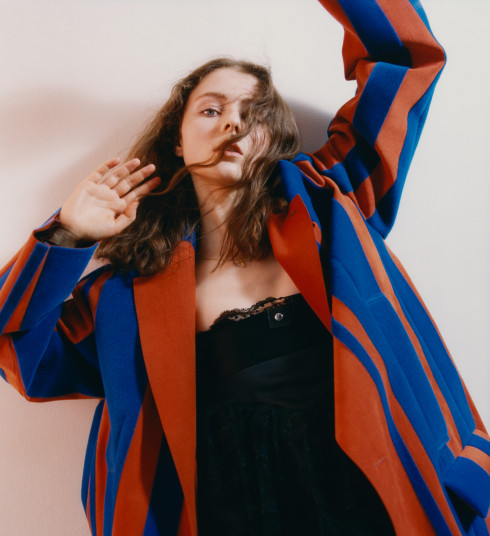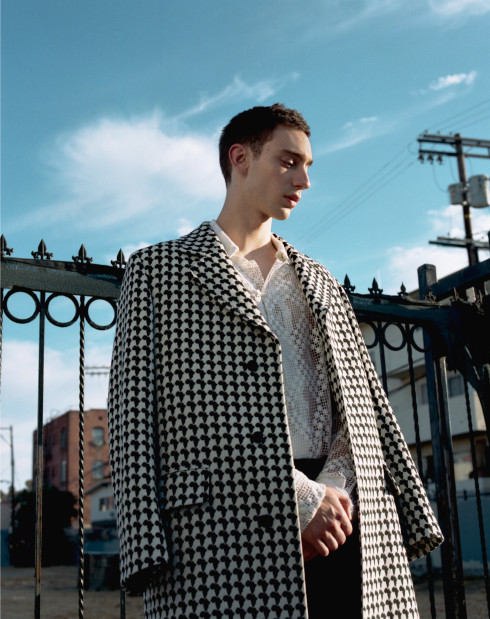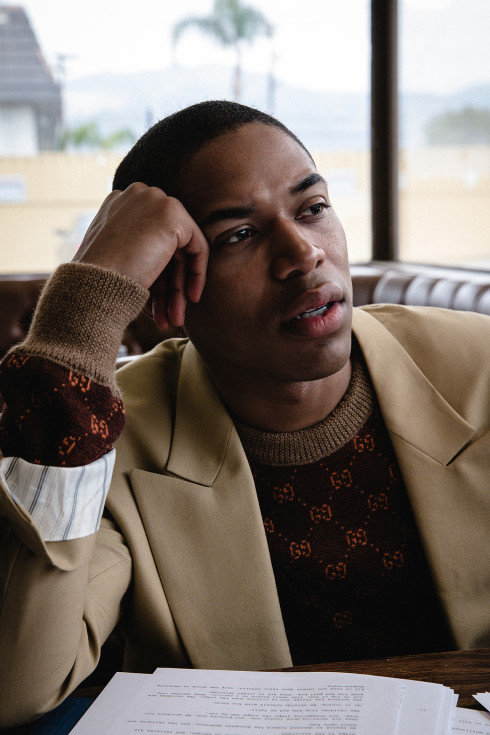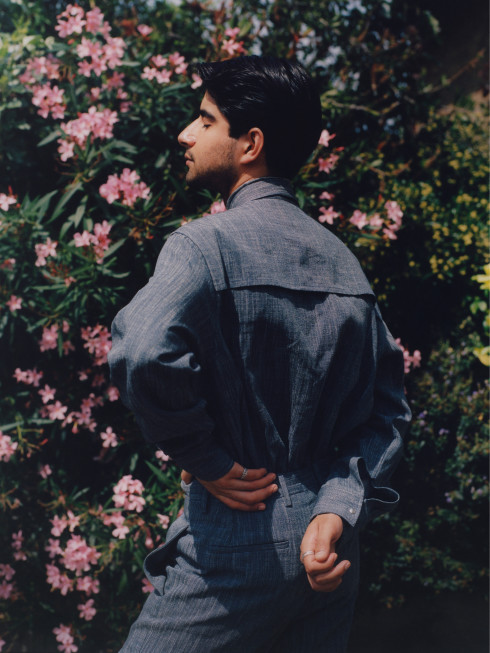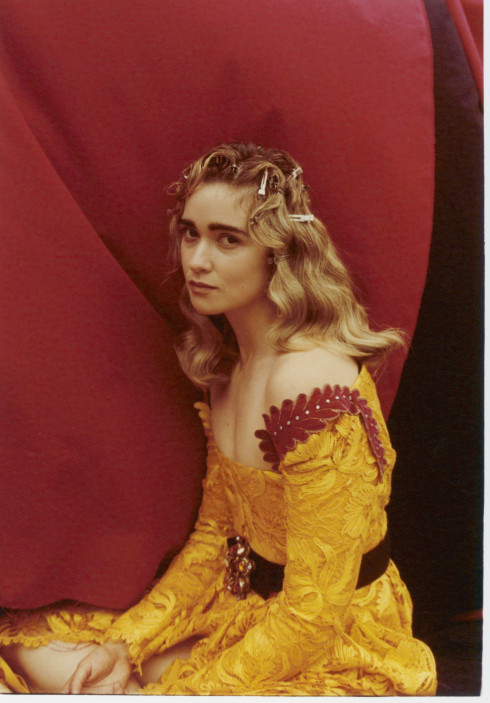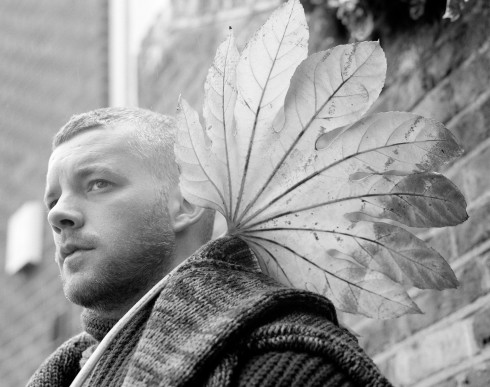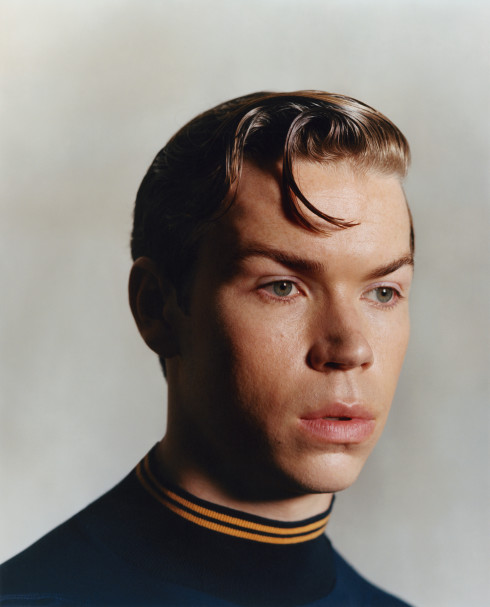- By
- Jonathan Shia
- Photography by
- Ward + Kweskin
- Styling by
- Sean Knight
Grooming by Tasha Holderman. Photographer’s assistant: Mike Lopez.
Stephan James Finds Strength in His Art
Stephan James is best known for films—like Race, Selma, and Barry Jenkins’s recent Moonlight follow-up If Beale Street Could Talk—that tackle heady issues, from racism and the civil rights movement to PTSD and wrongful incarceration, but the Canadian actor doesn’t like to think of himself as an activist. He is, first and foremost, an artist, and if his race helped define the course of the first part of his career, he is resolute not to let it confine him from here on out.
Now twenty-five, James is in the midst of his breakout moment, thanks to the confluence of two major projects arriving in close proximity last fall. In November, Amazon Prime released the new series Homecoming, directed by Mr. Robot creator Sam Esmail and co-starring Julia Roberts as a caseworker at a facility meant to assist returning veterans like James’s Walter with readjusting to civilian life, for which James earned a Golden Globe nomination for Best Actor. Then in December, Jenkins’s long-awaited adaptation of James Baldwin’s novel If Beale Street Could Talk premiered, with James starring as Fonny Hunt, who is biding his time in prison on a false accusation of rape while his girlfriend Tish, played by KiKi Layne, prepares to have their baby. The film and the show are vastly different in tone and theme—Beale Street is lyrical, gentle, and emotive where Homecoming is dark, propulsive, and brooding—but they both showcase different facets of James’s powerful intensity, as palpable whether he is locked in tense conversation with the knife-sharp Roberts or channeling a burst of creativity while carving a wooden sculpture surrounded by a swirl of smoke.
James, who had never read a novel of Baldwin’s and knew him only as a poet and activist beforehand, says it was Jenkins’s name that first drew him to Beale Street. “I asked Barry if he would meet me in Los Angeles for lunch and we spoke about the character and the film and the story he wanted to tell,” he recalls. “Then at that point, I pretty much begged him to be a part of it and told him I’d be willing to do whatever to be a part of the film. It was something that was timely and relevant and it felt important and special all in one.”
Set in Harlem in the early Seventies and told largely through flashbacks from Tish’s perspective, Beale Street is about a young love that is pure, overwhelming, and ultimately tragic, as Fonny remains behind glass for a crime he didn’t commit despite Tish’s family’s best efforts to secure his release. Wrongfully accused of rape by a vindictive policeman, Fonny’s plight is still sadly relevant in 2019, says James. “I didn’t really have to dig back into history to find some sort of inspiration for this character or this story,” he elaborates. “This story is so timely and timeless, maybe unfortunately timely. I never really had to look to the Seventies to find an example of a family that this has happened to. This is happening to African-American families on a daily basis. The idea of false imprisonment and mass incarceration and the effects that those have on not only the person going through it, but their families too, are what Beale Street was about.”
James says that he returned to the original novel on a daily basis while filming for insight—“Baldwin speaks so much truth in that novel,” he explains—but that his greatest inspiration for Fonny was Kalief Browder, who was arrested in 2010 at the age of sixteen for the theft of a backpack and spent three years on Rikers Island, nearly two of those in solitary confinement. After his release due to a lack of evidence, Browder struggled with readjusting to regular life, eventually hanging himself as he was unable to cope with the aftermath of his imprisonment and becoming a symbol of the continuing consequences of mass incarceration. “I didn’t have to look back to the Seventies for an example of this happening in America,” James explains. “It was just all too close to home. It’s something that happens on a daily basis.”
Getting into the mind of Homecoming’s Walter, a veteran undergoing a suspicious treatment regimen to prepare for a return to civilian life, required an entirely different process. Based loosely on the popular podcast of the same name, Homecoming is a tight psychological thriller, experimental in form and deeply layered in plot. The show was widely named one of last year’s best, but James admits it initially took him a while to get around to the project while he was intensely focused on filming Beale Street. “The first iteration of Homecoming that was sent to me was the podcast and I had never listened to a podcast before so I honestly put it on the back burner for about a week,” he recalls. “My manager called me and was like, ‘You got to listen to this podcast, it’s great.’ So I finally gave it a chance and I became obsessed with it. I never really realized that I could like a podcast as much as I did. I fell into this dystopian universe that was Homecoming.”

After playing the Olympic gold medalist Jesse Owens in Race and the civil rights leader Representative John Lewis in Selma, Walter was the first of James’s major roles he describes as “colorless,” a satisfying progression. “There was nothing in the script that mentioned Walter’s color, Walter’s blackness, if Walter was going to be black, nothing about his face or anything like that,” James explains. “This character could easily have been played by a black or white actor. There was no subject matter that had to do with race and that was really exciting to me, to have just a great story and a well-written role. It’s good to be a part of something like that and to be able to continue to open people’s minds on what it means to be an actor and a black actor and just expand the way people think in terms of what we’re able to do and the stories we’re able to tell.”
Growing up outside Toronto, James followed his older brother Shamier Anderson into acting, although he admits he has always been “pretty reserved.” “When I first realized that I liked acting, my brother made me realize that it could be a real thing,” he recalls. He made his début, like many Canadian actors, on the teen drama Degrassi before playing a Jamaican immigrant in his first major film role in 2012’s Home Again, earning a nomination for a Canadian Screen Award, often described as the country’s Oscars.
In 2013, he was cast in Ava Duvernay’s Martin Luther King Jr. biopic Selma and, a few years later, he played Owens in Race, about the athlete’s sweep of four gold medals at the 1936 Berlin Olympics, which served as a powerful rebuke to the ideology of the ruling Nazi party. “It’s always harder when you’re playing a real person,” James admits. “What’s exciting about these guys is they just felt like heroes. They didn’t feel like black people or black heroes, they just felt like American heroes. That’s what fascinated me more than anything, more than the color or anything, just that these men were incredible men who did incredible things during a time when all these chips were stacked against them.”
Now with Homecoming and another “colorless” character in the upcoming thriller 17 Bridges opposite Chadwick Boseman, Taylor Kitsch, and JK Simmons next summer, James says he has comfortably moved on from being asked to audition only for roles written as black and has his sights set on expanding his repertoire even further. “What do I want to do? I want to do everything,” he says. “I want to be a superhero. I want to do popcorn movies. I want to do really cool indie films. I don’t really have any limits in terms of the characters I want to play, I want to do it all.”
Still, it’s clear that James recognizes both the privileges and responsibilities that come with being an actor—and an increasingly visible one at that. “I think that with art, we have an incredible opportunity to educate people,” he explains. “I truly believe in art that reflects life and society and again unfortunately sometimes some of the themes in these stories still resonate so much today that you feel like a film is the only way to go about addressing some of these issues. It feels like something important. It feels like more than just making a movie.”
If Beale Street Could Talk is now playing in theaters. Homecoming is now streaming on Amazon Prime.
- By
- Jonathan Shia
- Photography by
- Ward + Kweskin
- Styling by
- Sean Knight
Grooming by Tasha Holderman. Photographer’s assistant: Mike Lopez.
